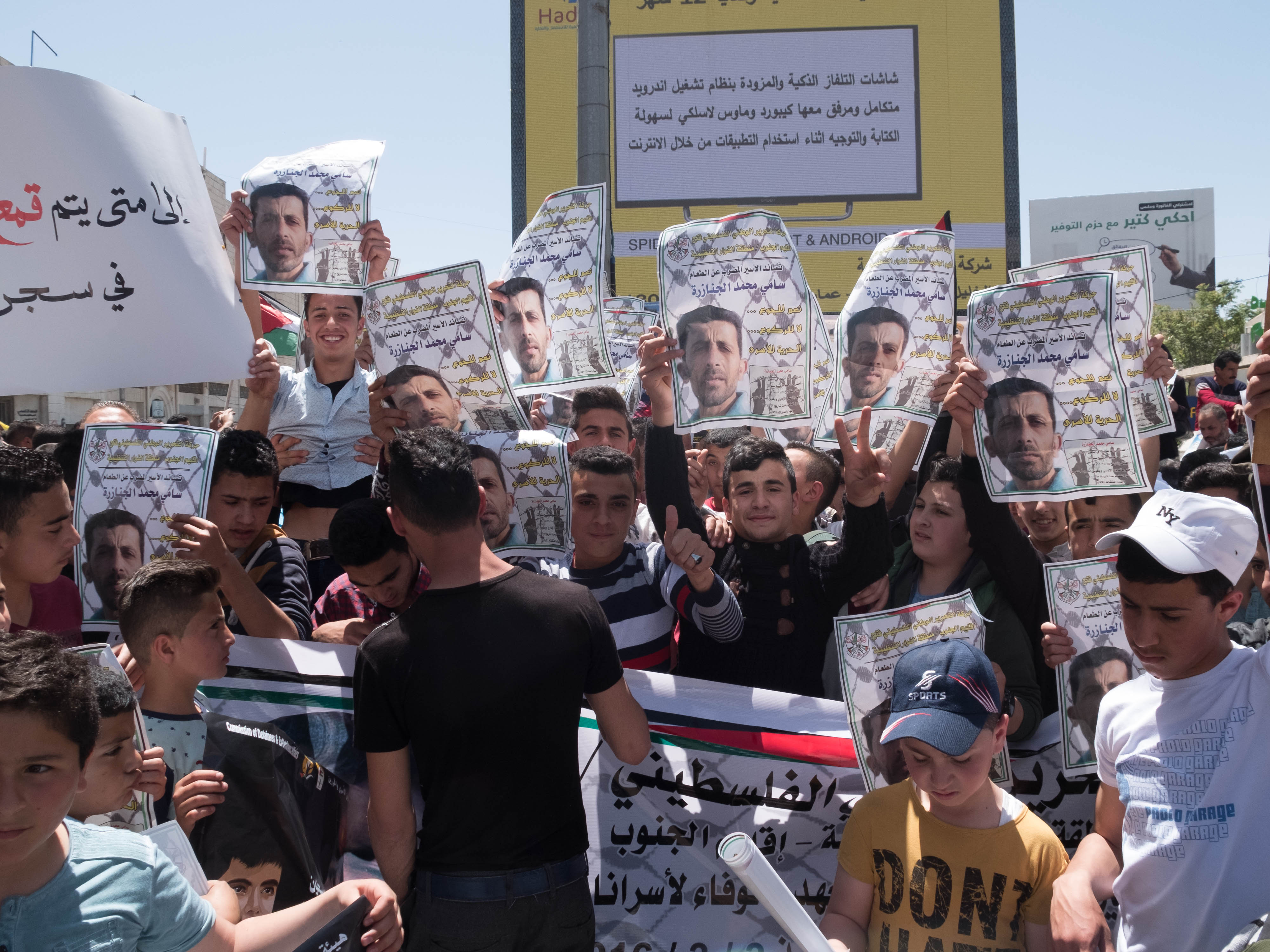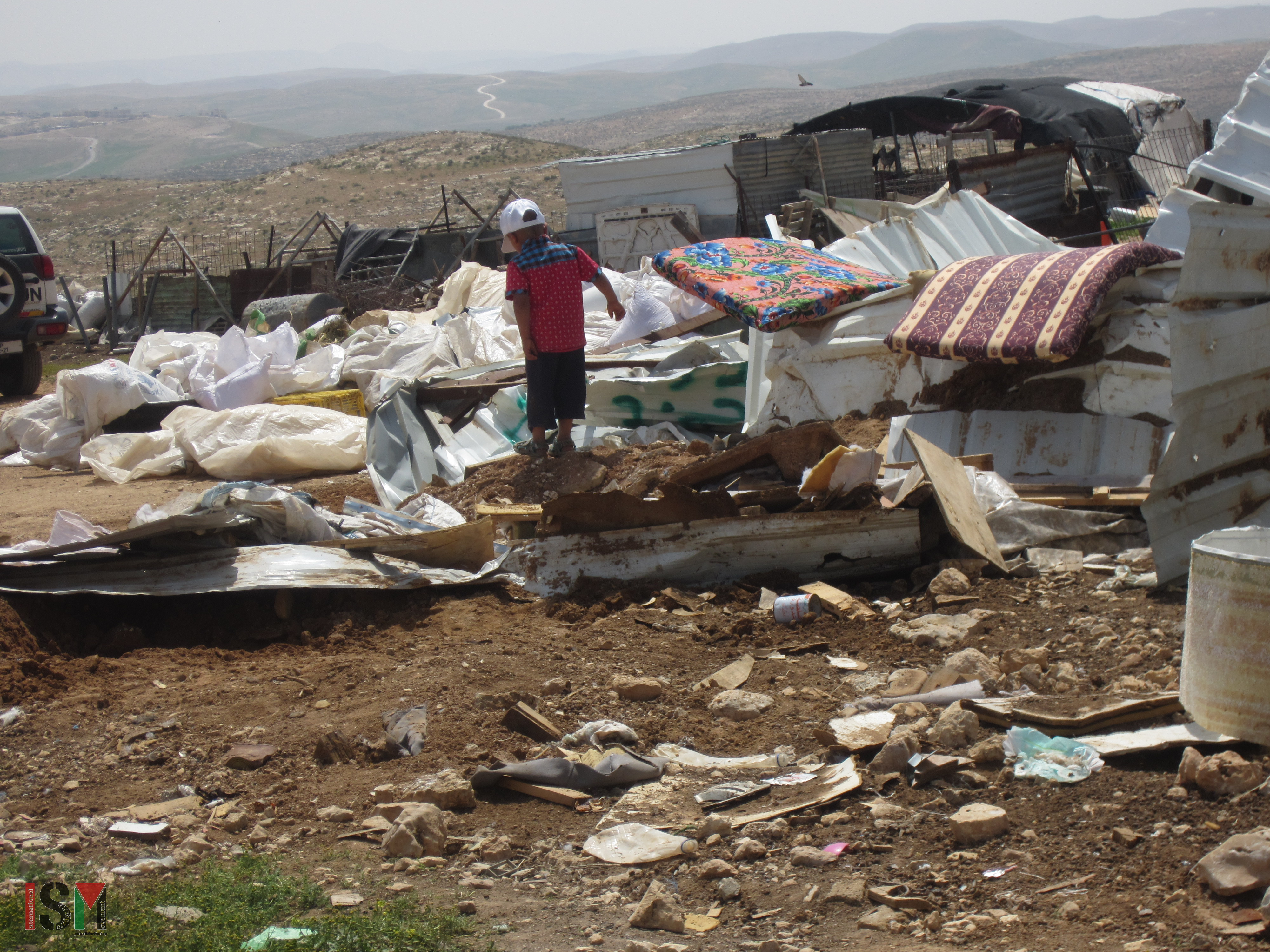Category: Hebron
-
Sami Janazreh enters 46th day of hunger strike
17th April 2016 | International Solidarity Movement, Al-Khalil Team | Hebron, occupied Palestine Today volunteers from ISM attended a demonstration in Al-Khalil for Prisoners’ Day. Once the main demonstration had ended in the city a group of young Palestinians invited the volunteers to the Fawwar refugee camp outside the city. At the camp they were…
-
Tree Planting and Protest in Beit al-Baraka
10th April 2016 | International Solidarity Movement, al-Khalil Team | Hebron, occupied Palestine Trees were planted and a demonstration took place today at Beit al-Baraka today to protest the extension of the illegal Gush Etzion settlement bloc. An international presence had been requested by the organisers so two ISM volunteers headed to Beit Ummar to…
-
House demolitions in Um Al-Khair leaving children homeless
7th April 2016 | International Solidarity Movement, Al-Khalil Team | Hebron, occupied Palestine Wednesday the 6th of April 2016 at 6 o’clock in the morning, Israeli forces demolished 6 homes in the village of Um Al Khair in the south Hebron Hills in the southern part of the occupied West Bank in Palestine. 36 people…



